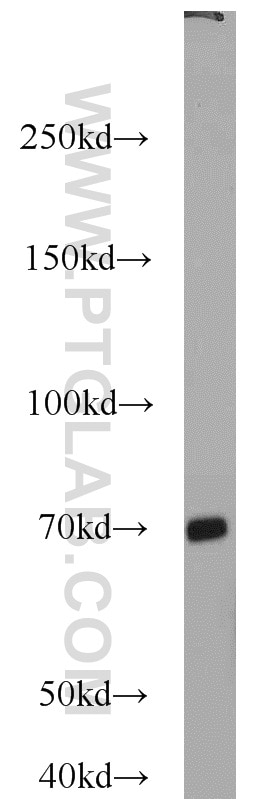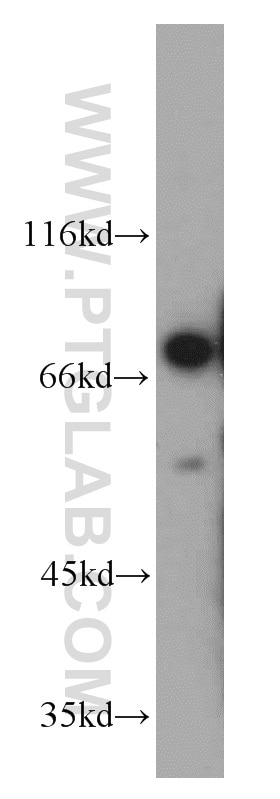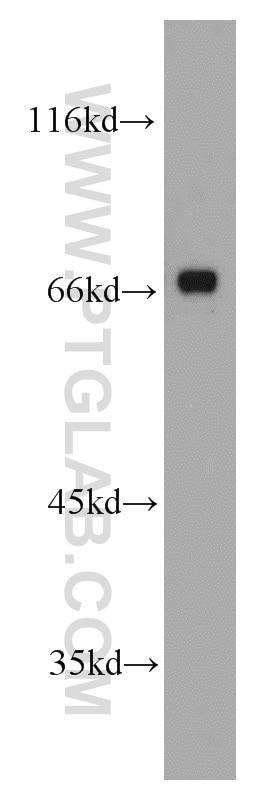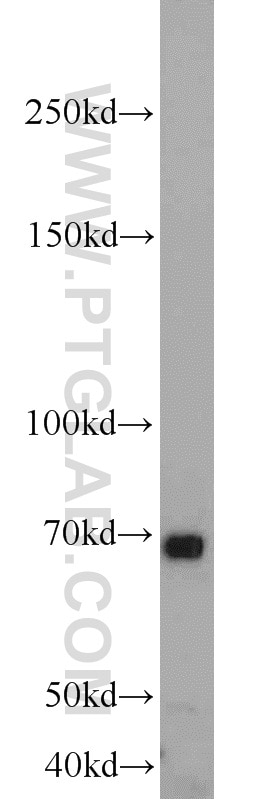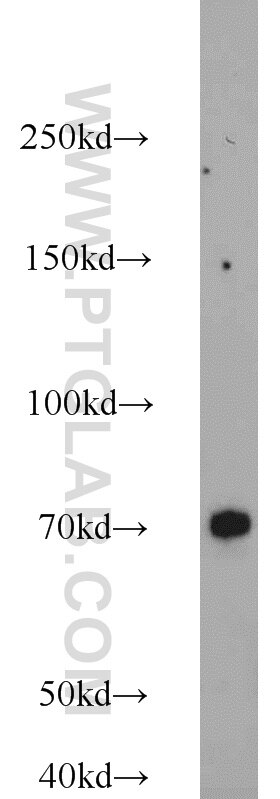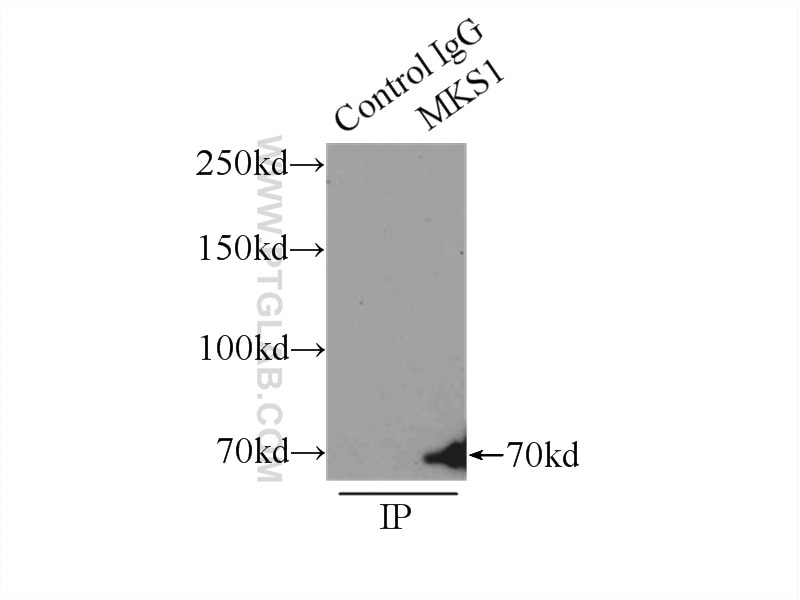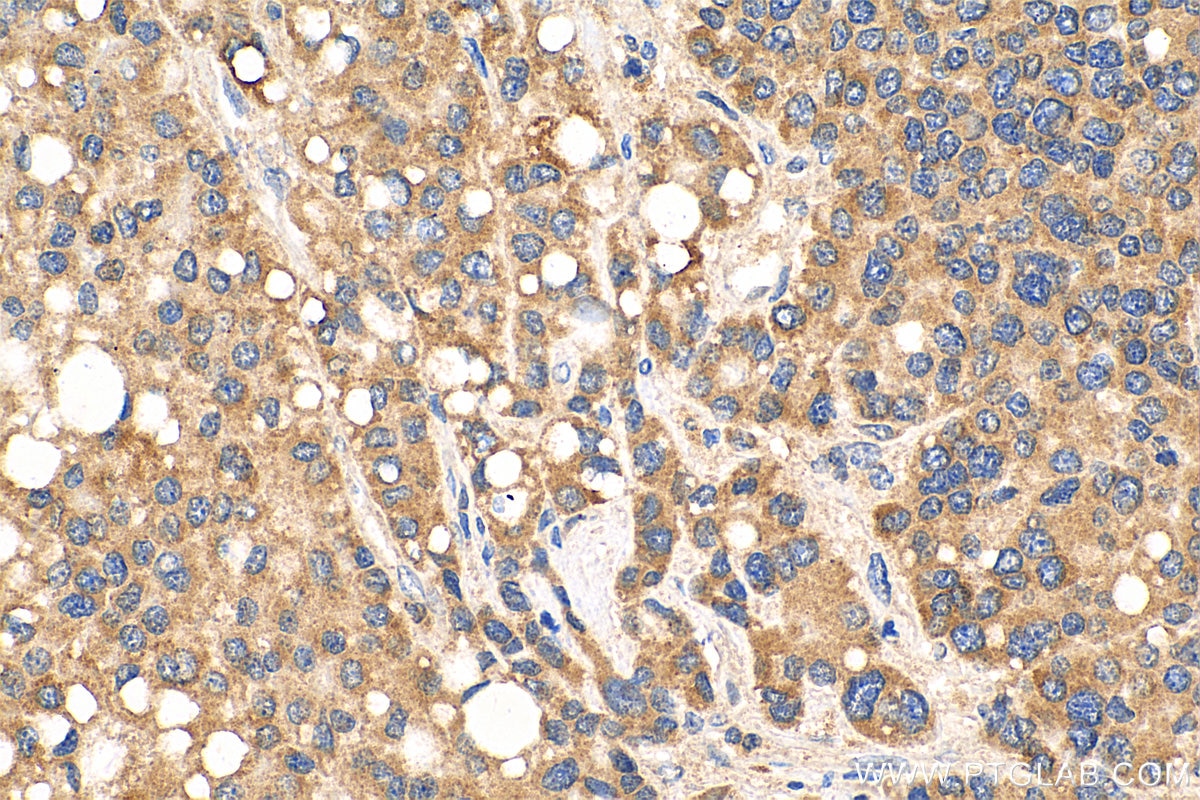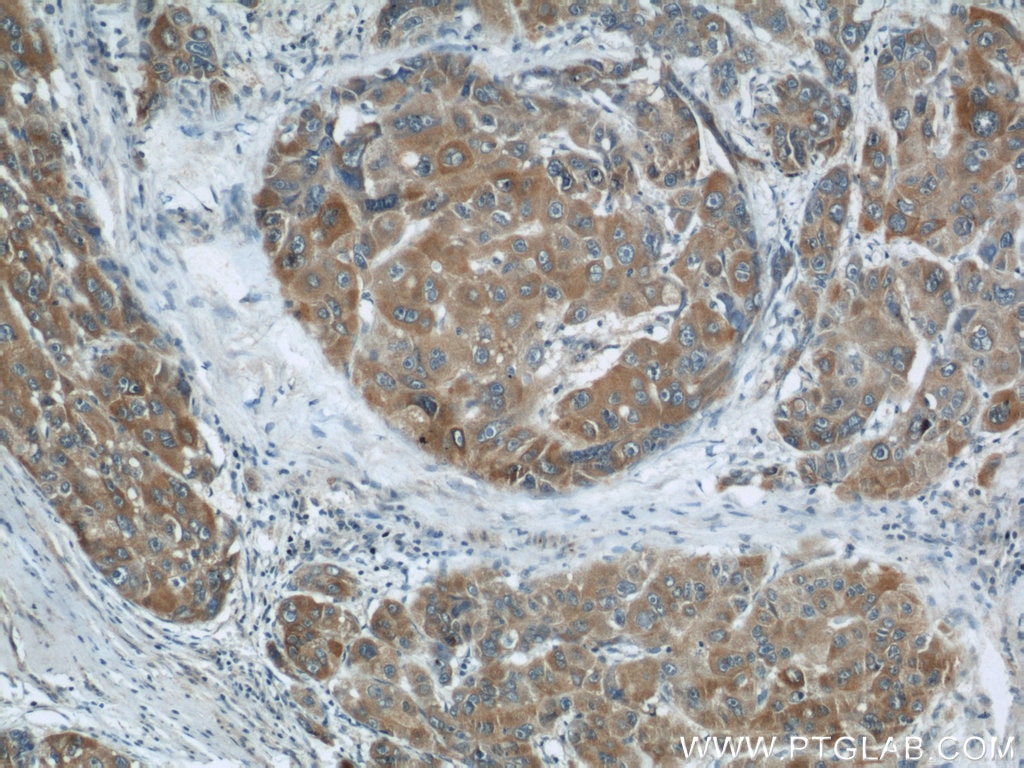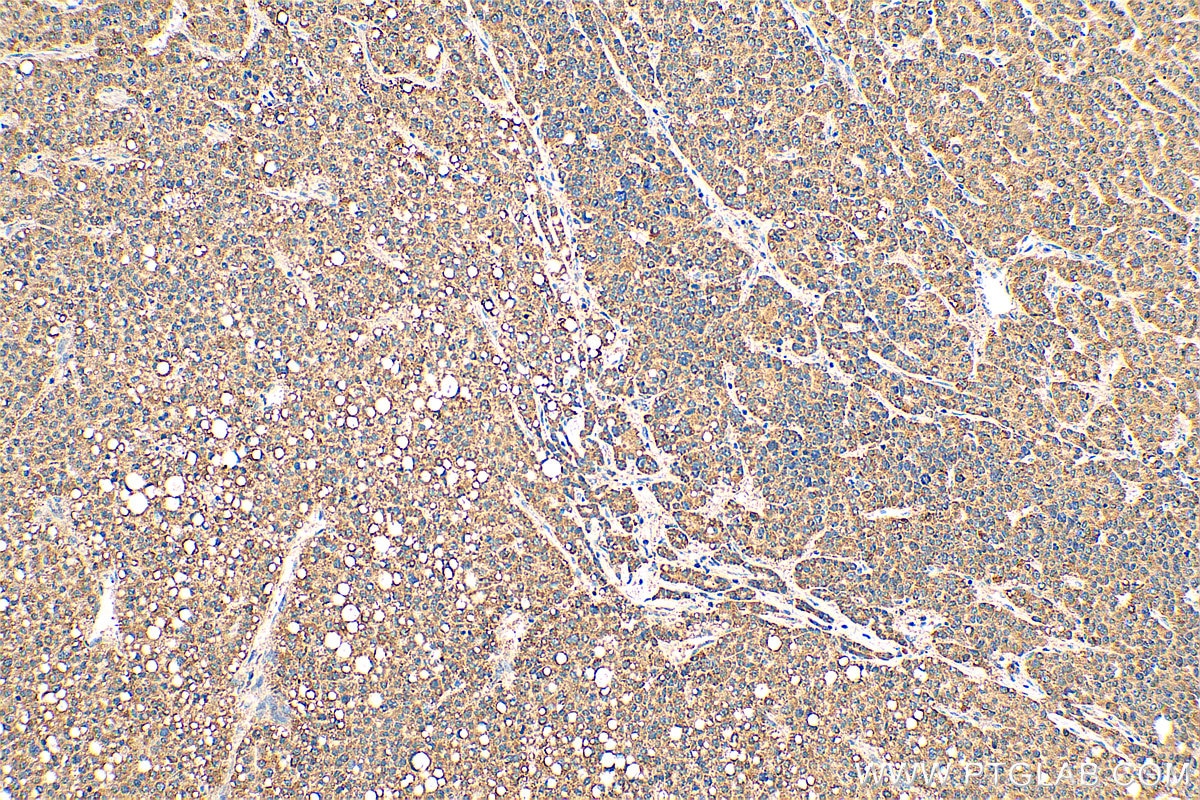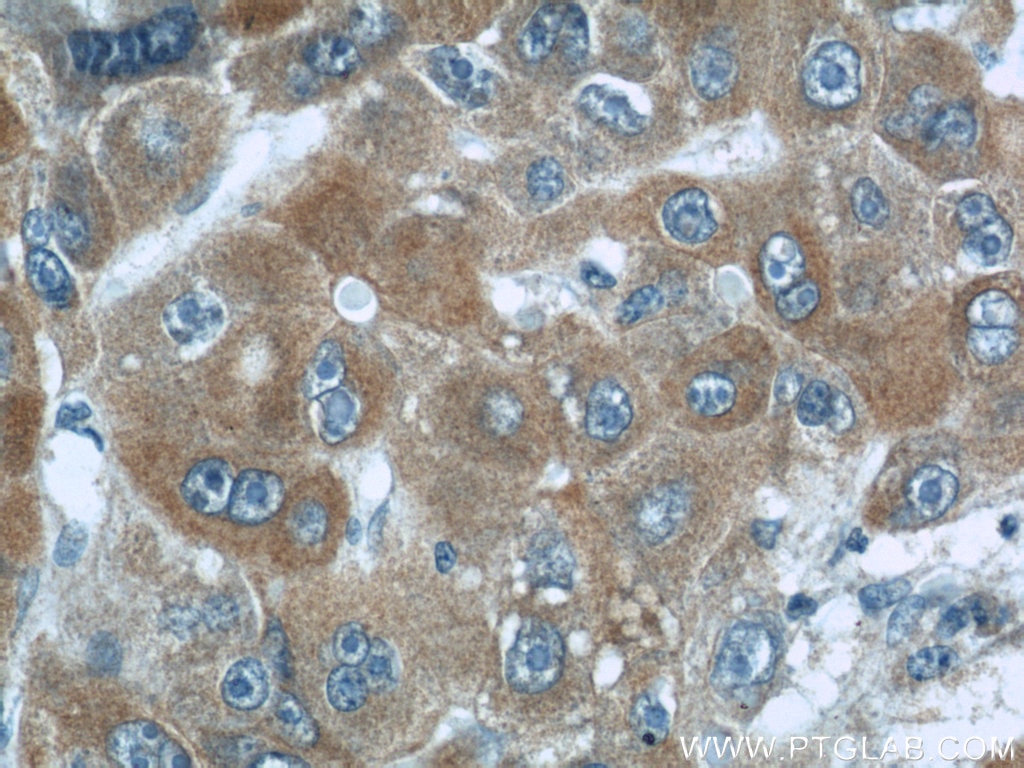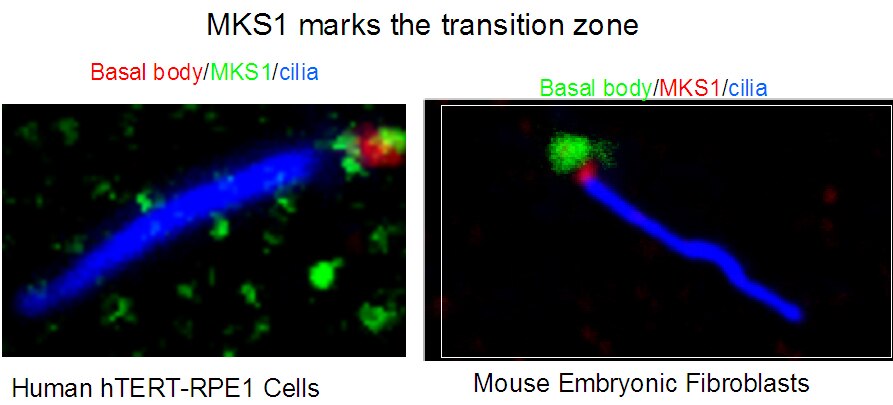Anticorps Polyclonal de lapin anti-MKS1
MKS1 Polyclonal Antibody for WB, IP, IF, IHC, ELISA
Hôte / Isotype
Lapin / IgG
Réactivité testée
Humain, rat, souris
Applications
WB, IHC, IF, IP, ELISA
Conjugaison
Non conjugué
N° de cat : 16206-1-AP
Synonymes
Galerie de données de validation
Applications testées
| Résultats positifs en WB | tissu cérébral de souris, cellules HEK-293, cellules HeLa, cellules SH-SY5Y, tissu utérin de souris |
| Résultats positifs en IP | cellules HEK-293, |
| Résultats positifs en IHC | tissu de cancer du foie humain, il est suggéré de démasquer l'antigène avec un tampon de TE buffer pH 9.0; (*) À défaut, 'le démasquage de l'antigène peut être 'effectué avec un tampon citrate pH 6,0. |
| Résultats positifs en IF | cellules hTERT-RPE1 et fibroblastes embryonnaires de souris |
Dilution recommandée
| Application | Dilution |
|---|---|
| Western Blot (WB) | WB : 1:500-1:2000 |
| Immunoprécipitation (IP) | IP : 0.5-4.0 ug for 1.0-3.0 mg of total protein lysate |
| Immunohistochimie (IHC) | IHC : 1:50-1:500 |
| Immunofluorescence (IF) | IF : 1:20-1:200 |
| It is recommended that this reagent should be titrated in each testing system to obtain optimal results. | |
| Sample-dependent, check data in validation data gallery | |
Applications publiées
| WB | See 7 publications below |
| IF | See 23 publications below |
Informations sur le produit
16206-1-AP cible MKS1 dans les applications de WB, IHC, IF, IP, ELISA et montre une réactivité avec des échantillons Humain, rat, souris
| Réactivité | Humain, rat, souris |
| Réactivité citée | Humain, souris |
| Hôte / Isotype | Lapin / IgG |
| Clonalité | Polyclonal |
| Type | Anticorps |
| Immunogène | MKS1 Protéine recombinante Ag9177 |
| Nom complet | Meckel syndrome, type 1 |
| Masse moléculaire calculée | 559 aa, 65 kDa |
| Poids moléculaire observé | 65-70 kDa |
| Numéro d’acquisition GenBank | BC010061 |
| Symbole du gène | MKS1 |
| Identification du gène (NCBI) | 54903 |
| Conjugaison | Non conjugué |
| Forme | Liquide |
| Méthode de purification | Purification par affinité contre l'antigène |
| Tampon de stockage | PBS with 0.02% sodium azide and 50% glycerol |
| Conditions de stockage | Stocker à -20°C. Stable pendant un an après l'expédition. L'aliquotage n'est pas nécessaire pour le stockage à -20oC Les 20ul contiennent 0,1% de BSA. |
Informations générales
MKS1 (Meckel syndrome type 1 protein) is a 559-amino acid protein that contains a conserved B9 domain. It is a component of a large protein complex which localizes to the ciliary transition zone and regulates mammalian ciliogenesis and ciliary membrane composition (PMID: 21725307). MKS1 is required for ciliary structure and function, and is involved in centrosome migration to the apical cell surface during early ciliogenesis (PMID: 17185389; 19515853). Broad tissue expression of the MKS1 gene has been reported (PMID: 16415886). Defects in MKS1 are the cause of Meckel syndrome type 1 (MKS1), an autosomal recessive lethal malformation syndrome characterized by renal cystic dysplasia, central nervous system malformations, and hepatic developmental defects (PMID: 16415886). In addition, defects in MKS1 are also the cause of Bardet-Biedl syndrome type 13 (BBS13) (PMID: 18327255).
Protocole
| Product Specific Protocols | |
|---|---|
| WB protocol for MKS1 antibody 16206-1-AP | Download protocol |
| IHC protocol for MKS1 antibody 16206-1-AP | Download protocol |
| IP protocol for MKS1 antibody 16206-1-AP | Download protocol |
| Standard Protocols | |
|---|---|
| Click here to view our Standard Protocols |
Publications
| Species | Application | Title |
|---|---|---|
Nat Genet A transition zone complex regulates mammalian ciliogenesis and ciliary membrane composition. | ||
Cell The spinocerebellar ataxia-associated gene Tau tubulin kinase 2 controls the initiation of ciliogenesis. | ||
Sci Adv Ciliopathy protein HYLS1 coordinates the biogenesis and signaling of primary cilia by activating the ciliary lipid kinase PIPKIγ. | ||
Nat Commun Microtubule asters anchored by FSD1 control axoneme assembly and ciliogenesis. | ||
Nat Commun Phosphatidylinositol phosphate kinase PIPKIγ and phosphatase INPP5E coordinate initiation of ciliogenesis. |
